Putting a Lid on Illegal Communes

Nearly a decade-long fight against illegal communes
WESTDENE – No one understands the problem of illegal communes better than perhaps Dauw Steyn of the Westdene-Sophiatown Residents Association.
We sat down with him to discuss the issue.
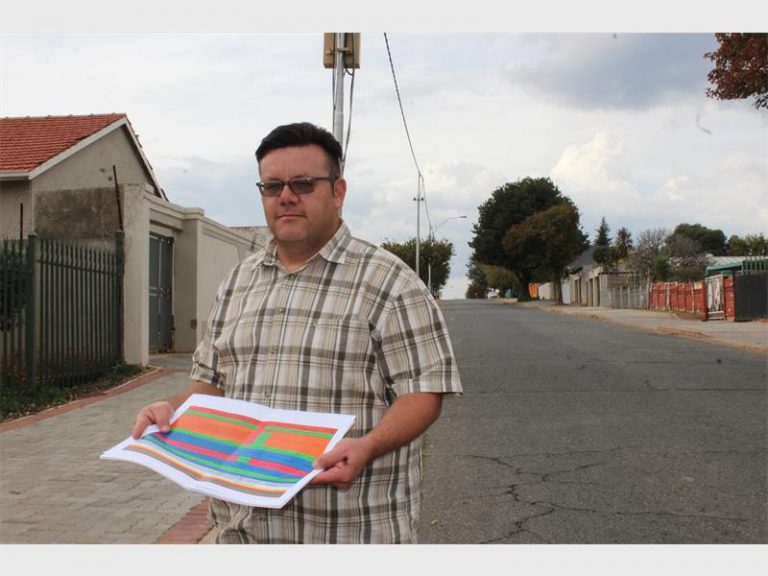
The Westdene-Sophiatown Residents Association chairperson and long-time resident Dauw Steyn speaks about their current efforts to deal with illegal communes.
In the past decade, illegal communes have started to become commonplace in Westdene, Brixton, Sophiatown and surrounds.
Residents have often tried to report communes that have been built illegally, but almost 10 years later, more and more of these infrastructures have cleared old homes to make way for this type of accommodation.
The result of this has been a major pressure on the underlying infrastructure with power outages, water-pipe bursts and sewage spills – often into Westdene Dam – a common sight.
Although students mostly make use of communes, both the City of Johannesburg and the local Westdene-Sophiatown Residents Association knows that communes welcome all types of tenants.
A simple Internet search shows that currently there is a large number of individual rooms to let in these areas at a monthly cost of around R3 000.
The association’s chairperson and long-time resident, Dauw Steyn, spoke to Northcliff Melville Times about their current efforts to deal with illegal communes. Steyn is also the Ward 86 committee member for public safety and chairperson of the Sophiatown Neighbourhood Watch.
“We have reached a point where we no longer accept any new commune applications,” he said.
This, he said, because the underlying infrastructure can no longer support it. Steyn is aware of 98 approved and 132 unapproved communes in Westdene and 14 approved in Sophiatown.
This is according to a list sent to the association from the City of Johannesburg. It includes confirmed illegal communes, communes that the City claims they have visited and properties like the infamous 10a-2nd Avenue are listed as ‘no town planning contravention’.
“We have a lot of illegal buildings going up that have no approval. When we report it to the council, they apply for consent use.”
Steyn has been fighting specifically with the City’s town planning and urban development departments to enforce the by-laws already in place, but no, or at most little, avail.
“All they need to do is enforce the by-laws. They need to check on these properties and they don’t. We constantly have to contact them and follow up until you get blue in the face, otherwise nothing ever gets done,” he said.
Steyn fears there is corruption at play and he has taken documents to the Group Forensic and Investigation Services (GFIS). Just two weeks ago, the City suspended a building control officer for misconduct, pending an investigation into a list of allegations against the official.
These allegations include irregularities in the issuing of notices to developers, resulting in developments taking place without approved plans, creating a law-enforcement burden for the City, and loss of revenue.
Another allegation is that the official failed to implement a geoscience report, which pre-empted possible collapsing of houses in both Lenasia and Protea.
Various policies and projects are currently in place that could possibly affect the situation in Westdene and surrounds.
The draft inclusionary housing policy is currently out for public comment. The draft policy proposes that every new development of 10 dwelling units or more, must be 20 per cent inclusionary, or affordable, housing.
Author: Chantelle Fourie
Councillors concerned that infrastructure cannot handle illegal communes
JOBURG – We speak to ward councillors in Westdene and Sophiatown about the growing problem of illegal communes in these areas.
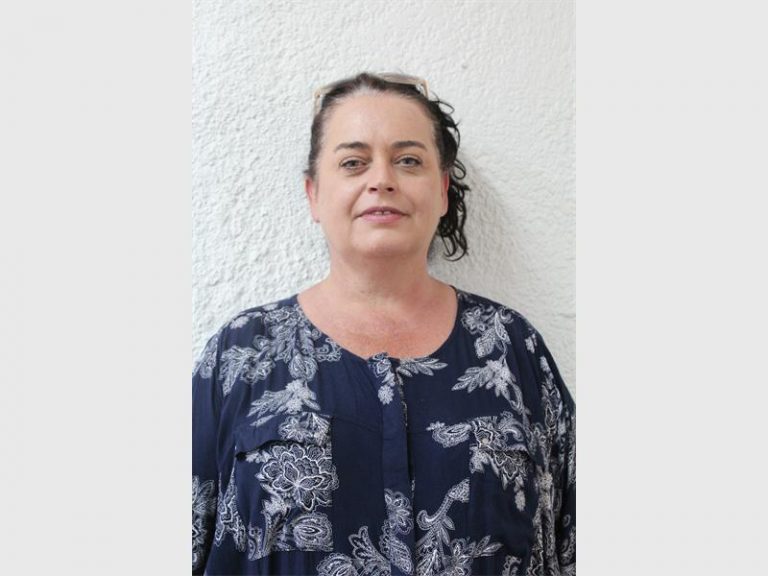
Ward 87 councillor, Bridget Steer, talks about the issues in Westdene and Brixton.
Ward councillors in areas such as Brixton and Sophiatown are fully aware of the massive problem illegal communes have become.
For Sophiatown and surrounding areas, Ward 86 councillor, Philip Kruger said it is a massive problem.
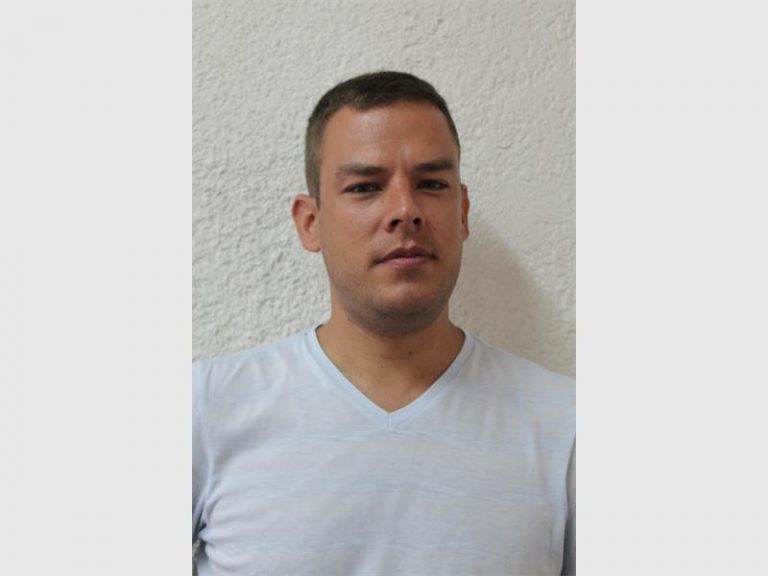
Philip Kruger, Ward 86 councillor, says illegal communes are a massive problem.
“It is difficult to say how many illegal communes there are because a lot of the communes that have been reported have never been investigated. We really struggle to get feedback from the City,” Kruger said.
He said the lack of by-law enforcement meant the problem has been left to grow to such enormity that there are no longer enough people to investigate or deal with the complaints.
Representing areas such as parts of Westdene, Auckland Park and Brixton is Ward 87 councillor, Bridget Steer, who said she is aware of 905 illegal communes between her ward and the rest of Westdene and ward 69, which includes Westbury.
“The problem is the infrastructure can’t cope because it is illegal densification,” she said.
“Communes usually have two bathrooms and a kitchen area, with the rest of the space being divided into bedrooms. Usually, we have 80 to 90 per cent coverage on an erf and we wind up with eight to 10 bedrooms, each with two people. There are at least 20 people on a property that has an infrastructure which supports only about four.”
Because they are illegal, these properties are not on record and the City cannot plan for them. This affects simple things like a wheelie bin, which all 20 people use. This can cause a litter problem and in turn, a health problem.
Steer said, specifically, student commune owners are supposed to make sure students get to university and back safely, but they are neglecting this.
In fact, according to the Westdene-Sophiatown Residents Association chairperson, Dauw Steyn, many of these property owners do not live in the area and often do not take responsibility for the communes.
Author: Chantelle Fourie
Police concerned about illegal communes, increased student crime
SOPHIATOWN – Police say illegal communes and student crime have become a major concern in Westdene, Brixton, Auckland Park and surrounds.
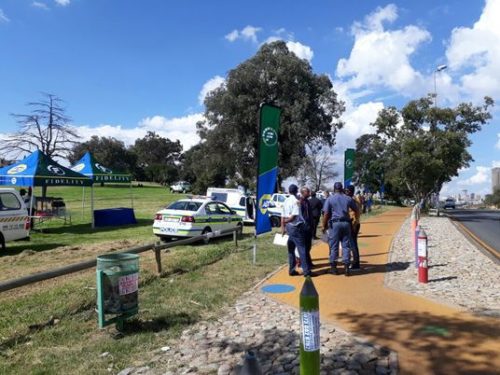
Students in the Westdene areas stop to speak to the police, Westdene Patrollers and Fidelity ADT representatives during a drive to increase safety awareness.
While illegal communes and overcrowding is an ever-increasing concern for local police, crime targeted at students who often need to call these communes home, are on the rise.
Sophiatown and especially Brixton police stations have to deal with crimes arising from the particular circumstances surrounding student communes and students in general.
Brixton police spokesperson, Jeanette Bachoff, said the problem is huge.
“There are house robberies almost every week and street robberies daily when students walk to the communes. There is no security and students are soft targets,” she said.
Although there are much fewer communes, both approved or illegal, in Sophiatown, spokesperson Warrant Officer TJ de Bruyn said overcrowded communes can be a problem.
“With regards to overcrowding, we often conduct operations with various stakeholders like the department of housing and health as well as Metro police and City Power,” he said.
Backhoff advised that communities can assist by identifying illegal communes and reporting them.
Last month, the Sophiatown police, Westdene Community Patrollers and Fidelity ADT joined forces to engage students in Westdene and surrounding areas. Natasha Springfield, community development manager Fidelity ADT, said they wanted to meet with the students because they are indeed being affected by crime on the streets and in communes.
Days later, the security company helped catch two suspects targeting a property in 2nd Avenue, Westdene. Springfield said at around 3am the suspects forced open the steel pedestrian gate at the property. They then kicked open the front door and stole a TV and cell phone before fleeing the scene.
The security company was alerted and was able to apprehend the suspects. They were handed over to the Sophiatown police, she said. Police are now urging residents to become part of their local community policing forums to actively get involved and help deal with this problem that has begun to show no sign of stopping.
Author: Chantelle Fourie
Policies are in place to deal with illegal communes, City says
JOBURG – Take a look at the City’s response to illegal communes in Westdene and Sophiatown.
Illegal communes in Westdene, Sophiatown and surrounding areas have started to cause a greater headache for residents, law enforcement and the City of Johannesburg in recent years.
The City’s development planning department responded to questions about this issue from the Northcliff Melville Times.
What is the City’s policy regarding illegal communes?
Illegal communes are reported to the Planning Law Enforcement sub-directorate for investigation and the relevant and appropriate law enforcement processes are followed.
What is being done about illegal communes in areas like Westdene and Sophiatown?
Notices are issued for landowners to comply with their zoning, and if there is no attempt for compliance, further legal action is taken.
What is the appropriate way to apply for communes?
If the site is zoned Residential 1, a consent application in terms of the Planning Municipal By-law 2016 can be submitted to Land Use Management of Development Planning for consideration.
What has been found to be the reason for illegal communes? Why do owners not rezone the properties?
It is unclear what the reasons are, various workshops have been held in these areas since the inception of the commune policy so landowners are aware of the processes.
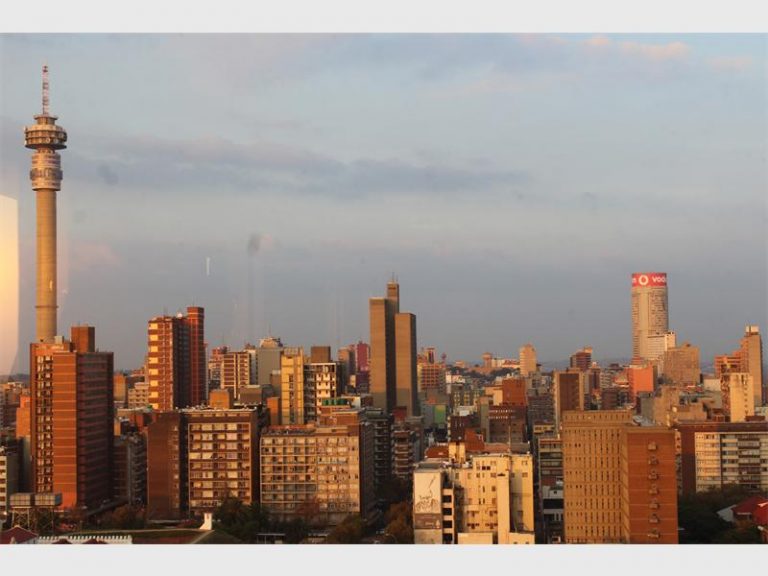
Illegal communes and so-called slum lording have been issues communities like Westdene have been grappling with for close to a decade.
A consent application process is an affordable process, that can be concluded in a relatively short time frame. A rezoning is only required for high-density residential developments in the identified corridors areas. The City of Johannesburg is well aware of illegal communes in Westdene, Brixton, Sophiatown and surrounds and it is focusing on owners who have converted residences to communes and failed to adjust their property rates accordingly.
During the course of the rates policy review meetings in February last year, illegal communes was once again a topic of discussion. The City then said that often property owners avoid registering or legalising their communes to avoid paying higher property rates.
Most of the communes are found near institutions of higher learning like the University of the Witwatersrand and the University of Johannesburg. The City’s commune policy of 2009 admits that not only have unauthorised commune establishments continued to mushroom without any formal regulation, but some of the authorised commune establishments have also contravened conditions of approval that were imposed by council.
It says residents are not only concerned about the communes, they are also concerned about slum lording and the general decay of the residential area as a result.
“The slumlords often take advantage of less fortunate students and low-paid workers and have them overcrowded in inhumane conditions for profit. These owners live elsewhere, causing decay in environments they themselves do not have to live in,” the department said.
Residents who wish to report suspected illegal communes can contact planning control law enforcement.
Theo Tempele can be reached on theot@joburg.org.za or can be called on 011 407 6042.
Author: Chantelle Fourie
